Amanar: A Refuge in the Stars
Felipe Carrelli, Jorge Rivero González, Andrea Rodríguez Antón, Nayra Rodríguez Eugenio and Diego Torres Machado on behalf of GalileoMobile and the Amanar Task Force explain how the ‘Amanar: Under the Same Sky’ project is using astronomy to support Sahrawi refugee communities through skills development and self-empowerment activities.
Read article in the fully formatted PDF of the Europlanet Magazine.
The Sahrawi population has lived in refugee camps located in the driest part of the Sahara desert since 1975. There, they have limited access to basic resources and experience urgent humanitarian needs. Growing up in this environment, young people face a life with no future prospects, with a high rate of absenteeism in classrooms and rising unemployment.
GalileoMobile is a volunteer astronomy outreach initiative that originated during the UN International Year of Astronomy 2009.1 Since its foundation, GalileoMobile has organised actions in 15 countries, sharing astronomy with more than 20,000 people. The scope of the programme has included activities with underrepresented groups, such as indigenous people in Brazil and communities in territories in conflict, like the separated Greek and Turkish Cypriot populations in Cyprus.2 GalileoMobile established the Amanar project to inspire young Sahrawis through astronomy, as well as increase their interest in science. The project seeks to facilitate the development of scientific skills, such as critical thinking, through practical activities and sky observations. In addition, the programme promotes workshops for teachers to encourage them to use astronomy as a tool for teaching and learning, and contributes to improving the quality of education.
The Foundations of Amanar
The Amanar project was established in 2019 with activities both in the Canary Islands (Spain) and in refugee camps near Tindouf (Algeria). The project started as a collaboration between GalileoMobile, the Instituto de Astrofísica de Canarias (IAC), the Asociación Canaria de Amistad con el Pueblo Saharaui (ACAPS), and the International Astronomical Union (IAU), through its Office for Astronomy for Development (OAD) and its centenary celebrations.
For the past 30 years, the ‘Holidays in Peace’ programme has made it possible for thousands of Sahrawi children from the Tindouf camps to be temporarily hosted by Spanish families during the hardest months of the summer. During the summer of 2019, we organised hands-on astronomy activities and visits to professional observatories in the Canary Islands for the Sahrawi children and hosts participating in the programme. In October 2019, Amanar organised educational activities and teacher-training at the Sahrawi refugee camps and donated kits of educational material. An ethnographic study on the Sahrawi traditional knowledge of the sky was also conducted. In total, 635 children, 66 teachers, and 150 people from the general public participated in the project activities.
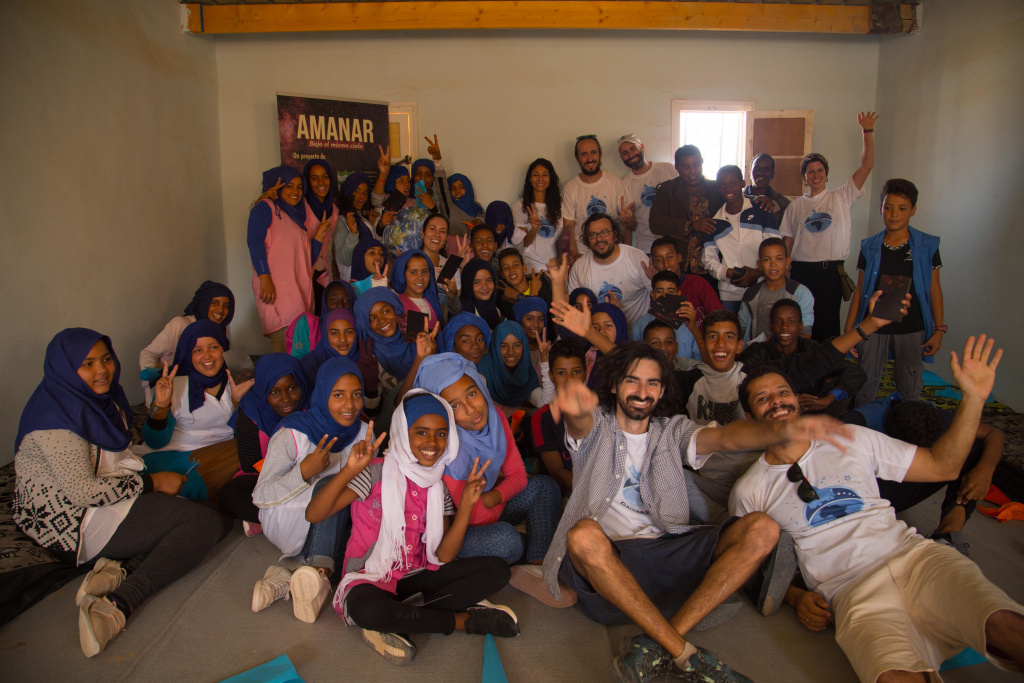
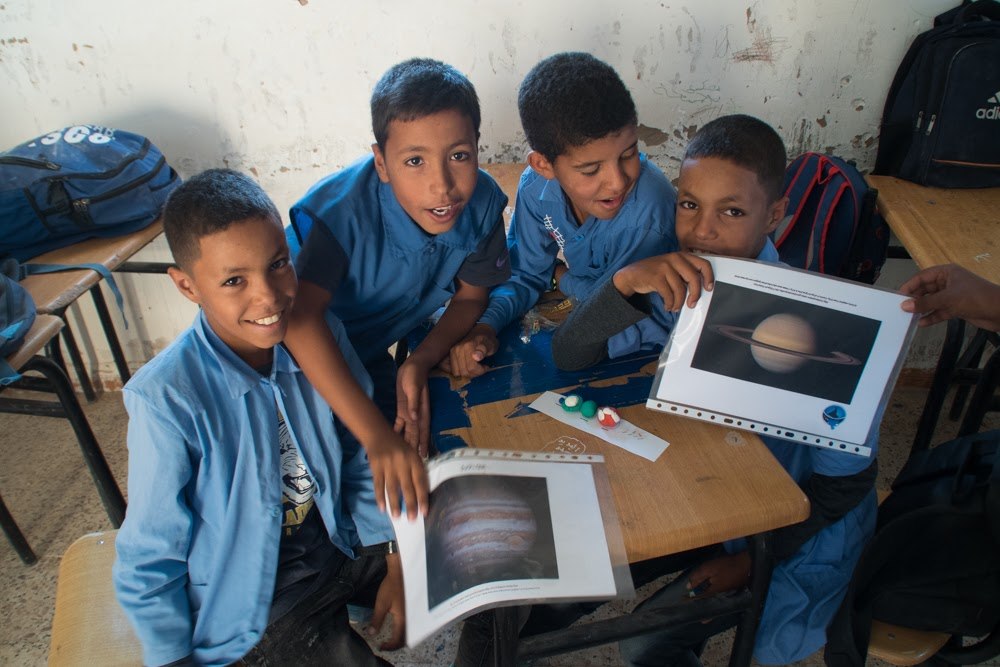
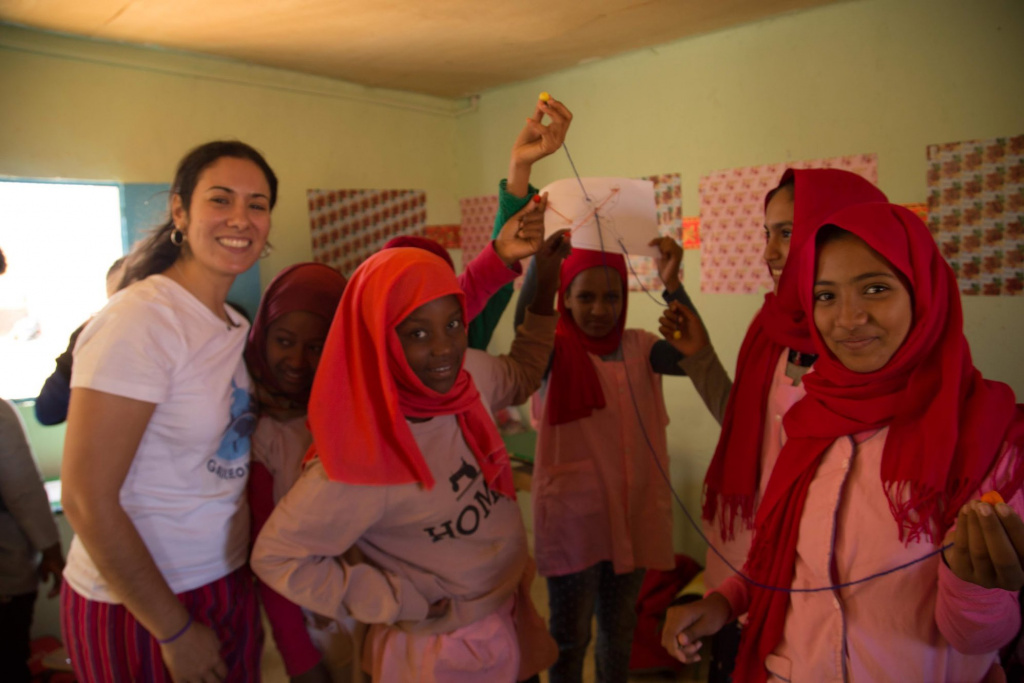
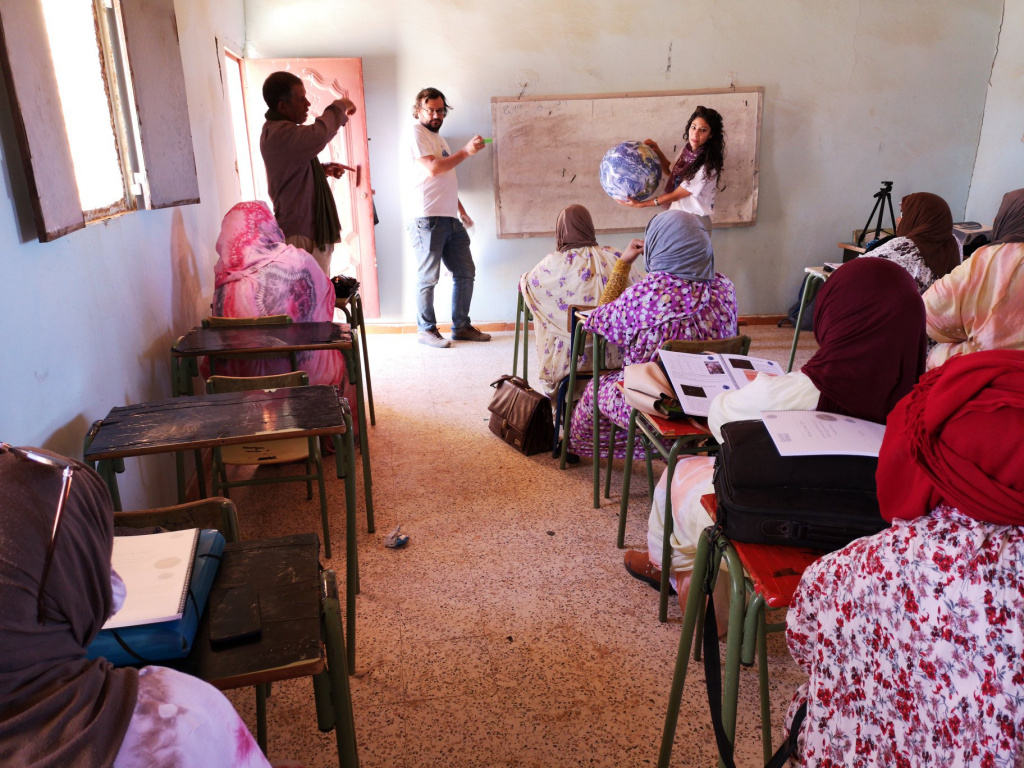
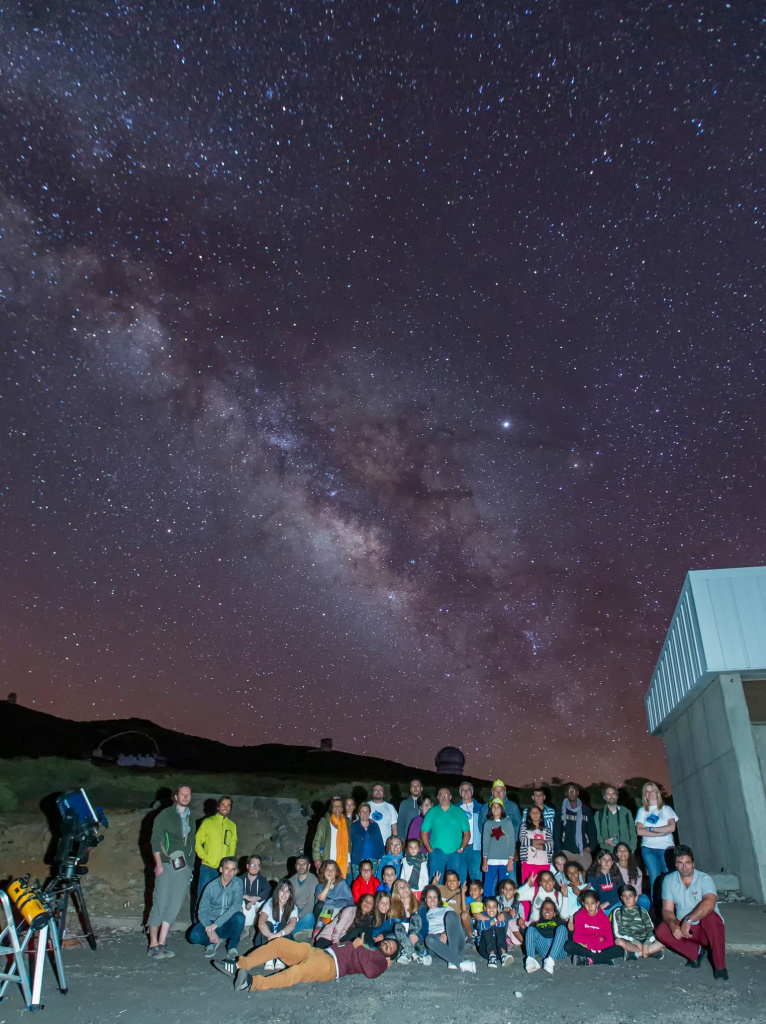
Follow-up activities in pandemic times
Thanks to grants from the IAU OAD and the Europlanet Public Engagement Funding Scheme, we were able to ensure the sustainability of activities to support the Sahrawi communities beyond 2019. However, the Covid-19 pandemic forced us to modify our plans, as we were prevented from organising the summer programme in 2020 and 2021. The return of activities in the camps was also postponed due to travel restrictions.
Nonetheless, the project was able to continue support to the Sahrawi community in alternative ways. For instance, we initiated a training programme with the Sahrawi teachers we worked with in 2019. The programme was developed through WhatsApp, which works efficiently, even with a poor internet connection, and teachers can easily use it through their mobile phones.
Other important actions included supporting a Sahrawi research group, with whom we started a study on ethnoastronomy and the development of ‘transmedia narratives’.
Ethnoastronomy
One essential goal of GalileoMobile is to learn about the context and culture we are working with. Together with educational activities, Amanar is involved in ethnoastronomical research for the preservation of the Sahrawi astronomical knowledge. During the visit to the refugee camps in 2019, we interviewed various people who lived in the desert before the Moroccan occupation in the 1970s, as well as their relatives. In particular, we were able to meet the descendants of a cultural icon for the Sahrawi, Chej Mohammed el Mami, who established the foundations of Western Saharan society in the nineteenth century. These conversations were an initiation to a long-standing tradition of careful observation of the sky for various purposes. The semi-nomadic Sahrawis needed to have a firm grasp on the position of particular celestial bodies to orientate both in the territory and time, but the cosmos was also a place inhabited by mythological figures and was the stage for different stories.
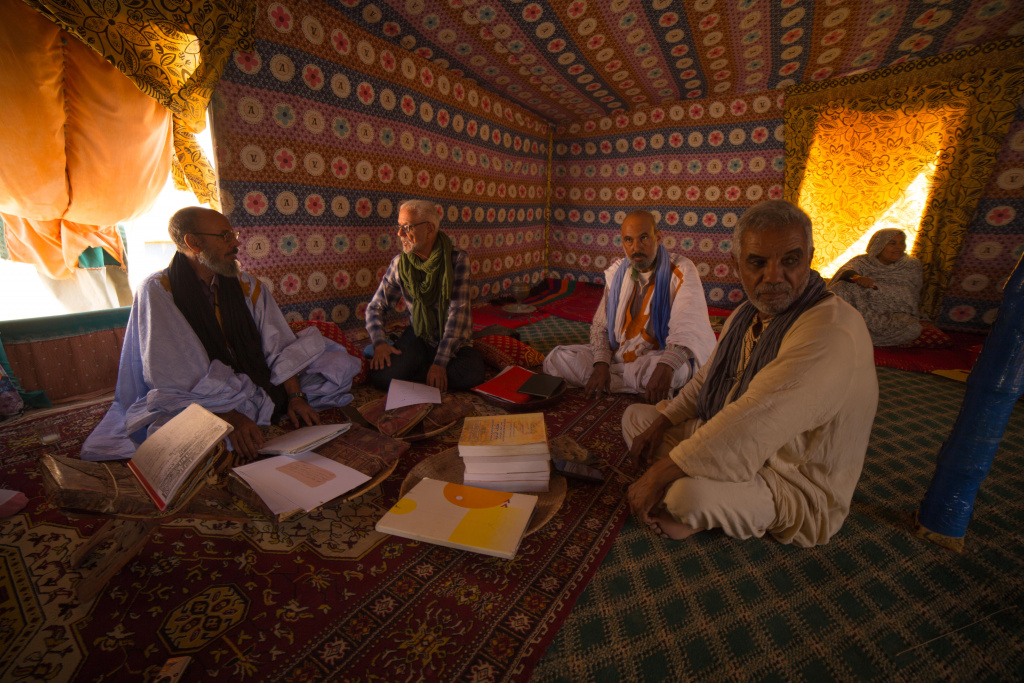
In 2021, in the framework of Amanar follow-up activities, we awarded five grants to Sahrawi researchers in the camps. Over the course of the next year they made a tremendous effort to carry out interviews with various elders who lived in the desert before their forced exile, and transcribed all the information collected. The physical and technical conditions were precarious because, even though we could finance the acquisition of some basic audiovisual and computer equipment, the electrical and internet connectivity was unstable and sometimes non-existent. However, we adapted to the conditions. At least every month, we met with the researchers via WhatsApp video calls to discuss the evolution of the research, their needs and also to provide training in computer and astronomical skills.
Since the Sahrawi consider astronomy a key element of their cultural identity, we believe it is very important to try to continue collaborations and preserve this ancestral knowledge, which we have already incorporated into the Amanar outreach activities.
Exploring Transmedia Narratives
An important outcome of the Amanar Project is the development of the Desert Stars Transmedia Narrative. During the interviews with the Sahrawi star experts, we recorded conversations through film, audio, photographs and 360-degree immersive videos. Our objective was to create a record of the oral memory of the Saharawi people and also to disseminate their astronomical knowledge. In reaching diverse audiences, regardless of their level of access to technology, we aimed to approach scientific knowledge from a decolonial perspective.3
We adopted a co-creation process in order to listen to what the interviewees had to say about our goal.4 From these interactions, other demands and themes emerged. This, in turn, led us to adopt a ‘transmedia’ strategy, a concept based on the creation and dissemination of different – albeit related – content on different platforms that is built around the relationship and engagement with the public.5
Our Transmedia Narrative was composed of six different products: Desert Stars VR (a virtual reality documentary), Desert Stars 360º (a 360º documentary), Searching for Stars (an interactive docugame), A Refuge in the Stars (a feature-length film), GalileoCast (a podcast series) and Irifi (an art gallery installation). Each piece explores a complementary approach and user experience, based on the specific media and platform.6
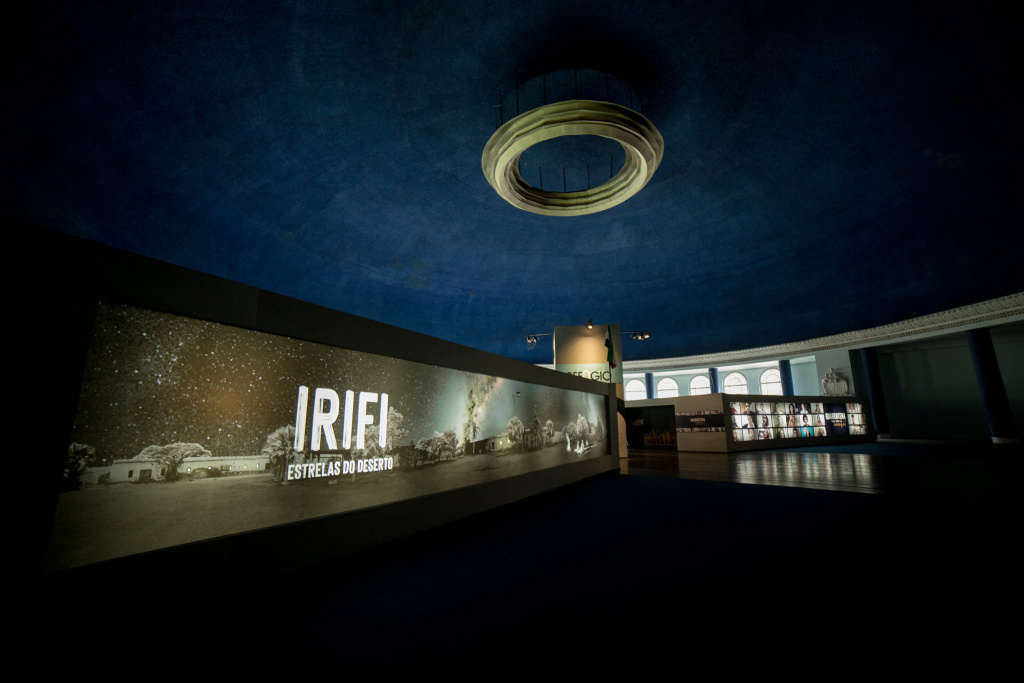
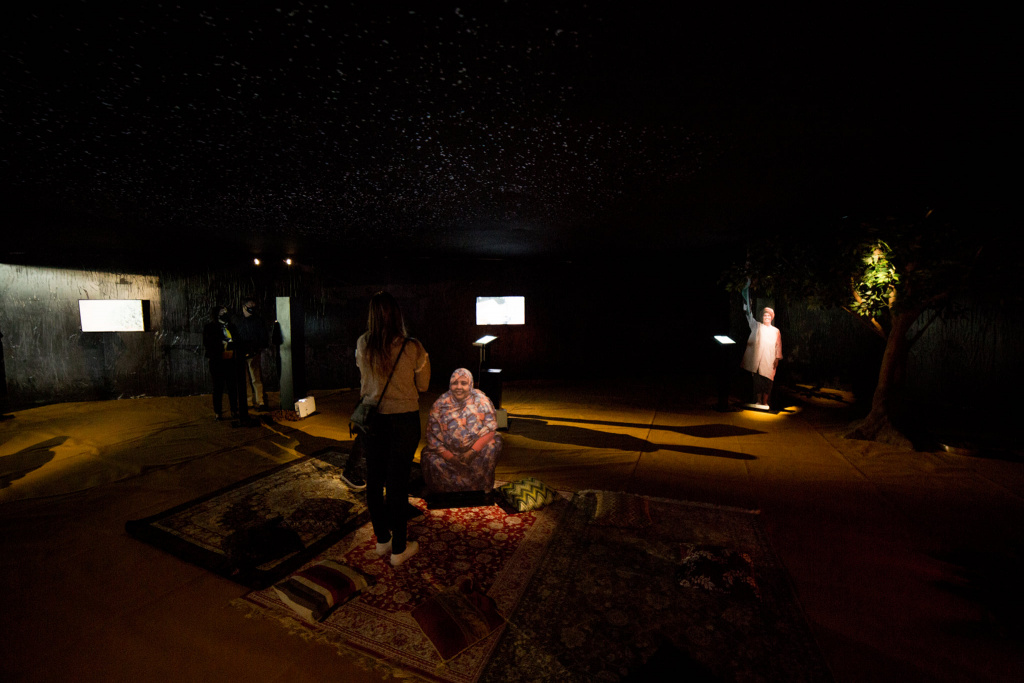
So far, there have been very positive responses from the public regarding the products. Irifi was part of the ‘Ocupação Refúgio’ show in Sesc Quitandinha, Petropolis, Brazil, between 8 October 2021 and 30
January 2022, and the installation was visited by 137,670 people. Desert Stars 360º was exhibited at the ‘ArtSpaceShip’ on the Ukrainian platform V-Art and at the ‘Crystals of Time – CoMciência Exhibition’, organised by the Museum of Mines and Metal in Belo Horizonte, Brazil. Desert Stars 360º was also selected by The Science Film Festival 2021 and exhibited at the Bibliotheca Alexandrina Planetarium Science Center, in Alexandria, Egypt.
2022 Summer Activities
In summer 2022, as the pandemic restrictions were lifted, the ‘Holidays in Peace’ programme resumed, along with Amanar’s summer programme. This year, we expanded our activities to Tenerife, Madrid, Granada, Valencia and A Coruña. This was possible thanks to collaborations with the Instituto de Astrofísica de Canarias (IAC) in Tenerife, the European Space Agency’s CESAR education facility in Madrid, the Instituto de Astrofísica de Andalucía in Granada, the Observatorio de Valencia and the Agrupación Astronomia Coruñesa Ío in A Coruña, as well as Sahrawi organisations, which organised the local activities.
A total of 100 Sahrawi children and around 50 members of the host families participated in visits to science centres and observatories. The children experienced the excitement of the Universe through hands-on activities about the Solar System, stars and exoplanets, as well as telescope observations.
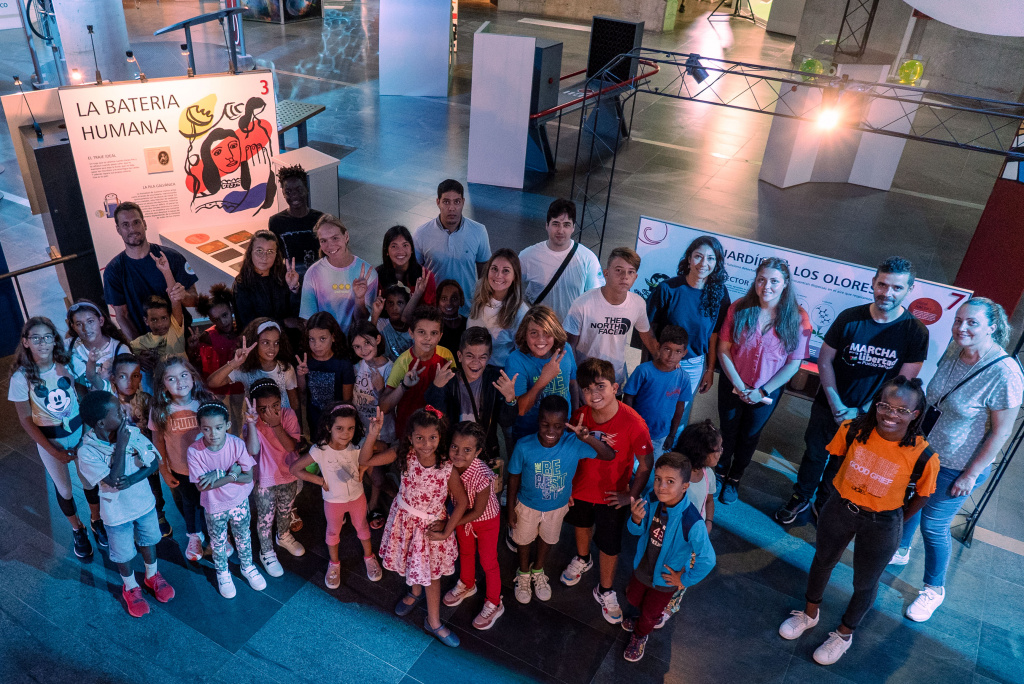
Future Actions
The Amanar project is committed to continuing its support of Sahrawi refugee communities. The summer programme has been reinforced by establishing collaborations with the participating astronomical institutions. In 2023 we expect to add new cities in Spain and also begin summer activities in Italy. At the moment, the project is starting discussions for a new visit to the refugee camps near Tindouf. This will help to cement the relationship we have established, with the Sahrawi communities in the camps as well as during our follow-up remote activities in the past years, and finally reaffirm our support to the Sahrawi cause.
References
2. www.galileomobile.org/columba-hypatia
3. Castro-Gómez & Grosfoguel (coords.), 2007. ISBN: 978-958-665-096-0
4. Cizek et al, 2019. DOI: doi.org/10.21428/ba67f642.f7c1b7e5
5. Jenkins, 2010. https://bit.ly/JenkinsTransmediaEducation


